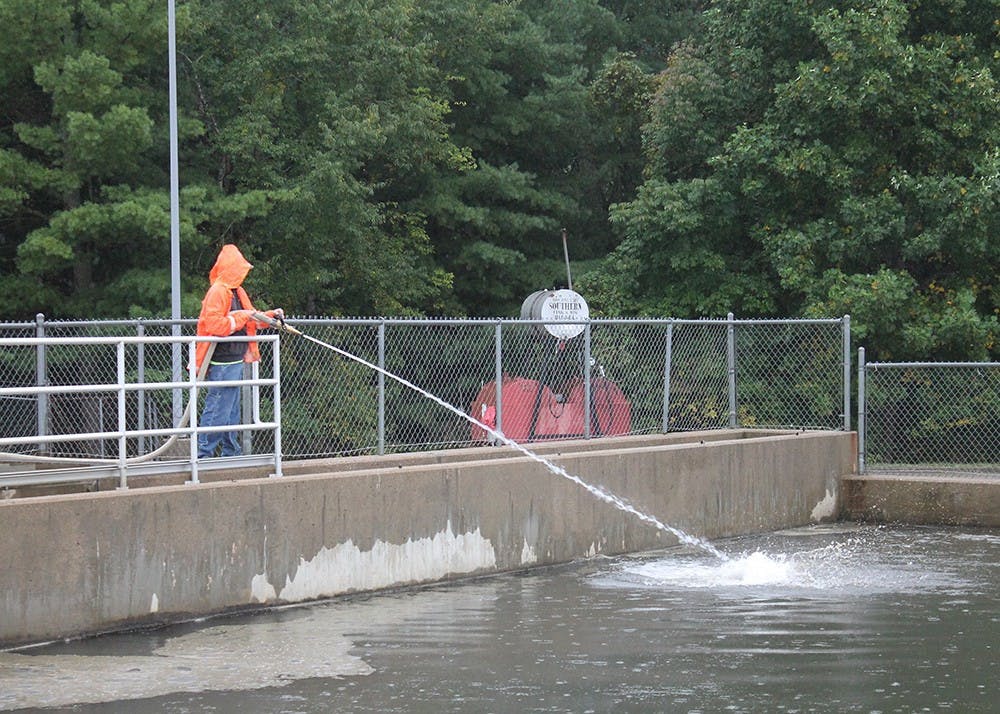The City of Bloomington issued a press release Monday acknowledging a failure to report samples of April’s total organic carbon in the city’s drinking water. The failure to report was due to an error in shipping.
Holly McLauchlin, utilities communications manager for the City of Bloomington, said the city routinely tests drinking water quality on-site, but more complicated testing requires samples to be sent to other labs in Bloomington and around Indiana.
The City of Bloomington reported the error to the Indiana Department of Environmental Management (IDEM) May 9. The city says the error was solely caused by a lack of reporting and Bloomington’s drinking water never diminished in quality. According to the press release, May’s total organic carbon samples were well within the Environmental Protection Agency acceptable range, meaning the samples came in under 0.05 milliliters per liter.
[Related: Indiana Environmental Reporter to cease operations in June]
Total organic carbon is a measurement of the amount of carbon atoms in organic compounds within a water sample. It serves as a useful benchmark for organic contaminants in drinking water. If ingested over many years, certain organic compounds can cause increased risks of cancer, reproductive difficulties, organ damage and other health effects.
Utilities Director Vic Kelson said in the press release that the error was the first in two years.




